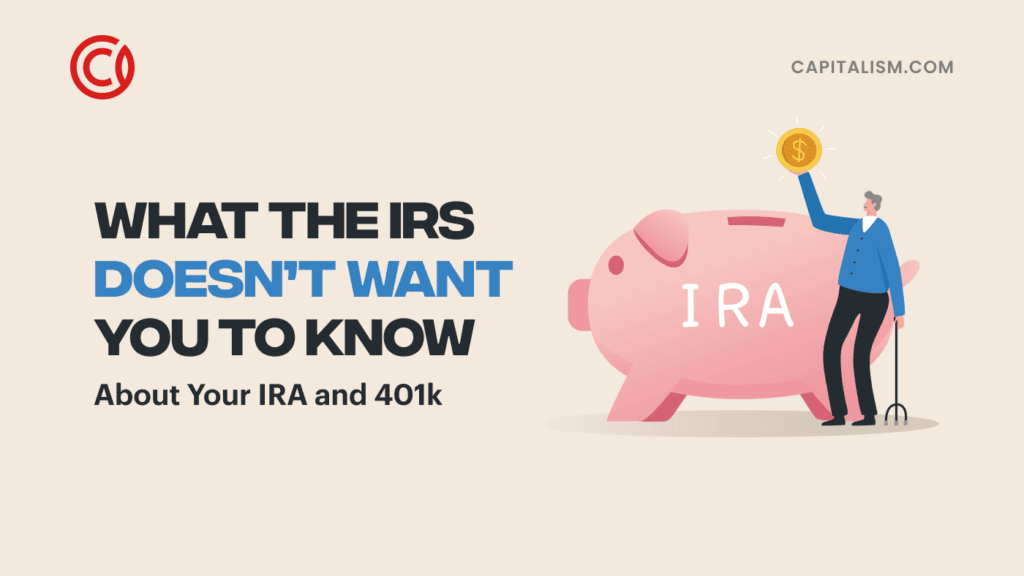He outlined his belief that taxation is theft to a budding socialist.
A time comes in every libertarian’s life when they must explain to a fellow individual why taxation is theft. That’s what recently happened to Toine Manders, a Dutch lawyer and the leader of the Netherlands Libertarian Party.
Although Europe is better known for their social welfare programs than they are mainstream libertarian politicians, Manders is getting some worthy attention for his explanation of property rights. The video has since gone viral, amassing over 200,000 views.
The funny part? He wasn’t there to have a philosophical debate with the commission. He was there to testify regarding tax declarations and the Panama Papers, the massive data dump of leaked files from the Panamanian legal corporate firm Mossack Fonseca. Manders testified due to his occupation as a tax consultant.
What he did let them know, however, is the general direction in which he consults his clients: away from paying taxes. The Dutch libertarian figure was prompted with the question, “We use taxation to provide services for all citizens. Do you see that as a legitimate use of taxation?”
Manders’ single-word answer, “No,” set the questioner off on an interrogation of his use of said services. She wanted to know if he lives in publicly funded housing and if his children attend publicly funded schools. He admitted that he does live in public housing and that his children did attend public school, but only because the government took away his house and his other property. She pushed back, asserting that his life was made possible by public services funded through taxation.
The questioner attempted to make Manders compromise on his principles, but it quickly turned into a lesson about property rights.
”That's the same reason that was used by the directors of the DDR. ‘You’ve enjoyed an education provided by the East German state and now you want to escape! You’re anti-social!’” Manders replied.
“That’s the reasoning I hear from you. It’s shocking to me that you dare to say that.”
But the questioner pushed back again, asking him if there are any legitimate forms of taxation, something she says previous testifiers agreed upon. In response to her continued line of questioning, Manders outlined the non-aggression principle and property rights.
“My vision is that every person has rights to his body and property. And everyone may do as they please, as long as they don’t violate those rights of others. That’s a fundamental human right – the right to self-determination.”
Manders then circled back to why he was even present at the commission because he’s served clients who are trying to get out of military conscription or who are trying to reduce their taxes. To him, taxes and mandatory military service are two of the greatest government injustices.
After illustrating the history of tax abuse by kings, Manders states that “the term theft applies when property is taken from you under threat of violence – when you have not caused damages that you refuse to compensate and when you are not in breach of an agreement that you voluntarily entered. And that’s exactly what government does… That’s how the state gets its money, by threatening to lock people in cages.”
In other words, taxation is the theft of one’s property and therefore the right to own the fruits of their labor. Manders asserts that taxation is not justified when he concludes that “the fact that part of that money isn’t used by the political elite to line their own pockets but is distributed as gifts that we haven’t asked for doesn’t legitimize theft.”
It’s refreshing to hear such libertarian philosophy on property rights outlined to a commission that typically advocates increased taxation and regulation. Although libertarian thought may not be as mainstream in Europe as it is in the United States, people like Manders are the individual who will make it more popular.
Senator Rand Paul (R-Ky.) gave a similar lesson to the U.S. Senate Health, Education, Labor, and Pensions Subcommittee in 2011 in response to Senator Bernie Sanders’ (I–Vt.) assertion that healthcare is a right.
Paul said about the “right” to healthcare, “It means you believe in slavery. It means that you’re going to enslave not only me but the janitor at my hospital, the person who cleans my office, the assistants who work in my office, the nurses.”
Paul struck a similar tone to Manders when he asserted, “Do you have a right to beat down my door with the police and escort me away and force me to take care of you? That’s ultimately what the right to free healthcare would be.”
MORE POLICY ISSUES DISCUSSED ON CAPITALISM.COM
• What Trump’s Tax Reform Proposal Could Mean for Entrepreneurs
• 6 Reasons to Eliminate Government Regulations
• Dairy Pride Act Is Protectionist Government Intrusion in Declining ‘Milk’ Industry











